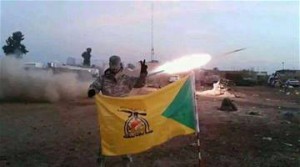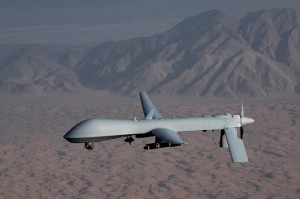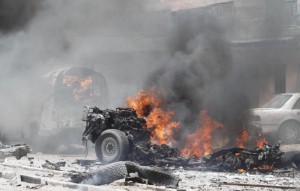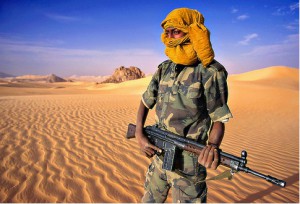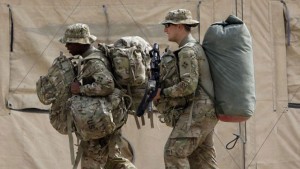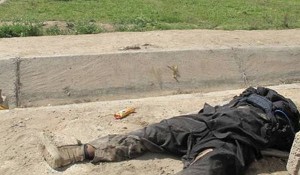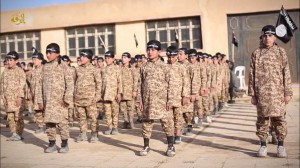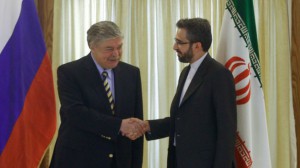DAILY MEDIA
AFTERNOON EDITION
WEDNESDAY 24 JUN 2015
Hezbollah Brigades allocate reward for capturing Islamic State elements
Hezbollah Brigades in Iraq announced the allocation of financial reward up to $ 12 thousand for those who captivate a foreign ISIS element.
The Special Operations of the Brigades said in a statement posted on its official website and followed by IraqiNews.com, “Hezbollah Brigades allocate a reward for those who captivate any ISIS element of certain foreign nationalities.”
The Special Operations of the Brigades added that, “$ 12 thousand has been allocated as a reward for those who captivate any ISIS element from Western Europe and North America and ten thousand dollars for those who captivate an element from the Arab Gulf states, Lebanon and Algeria.”.
Special Operations explained that “the reward for those who captivate any ISIS element from the Caucasus and Turkey will be seven thousand dollars, while the reward excluded the nationalities of Iraq, Pakistan, Afghanistan and Syria.”
U.S. drone strike said to kill doctor trying to implant bombs
Early in 2012, worried that suicide bombers might pass through airline security undetected, American counterterrorism officials ordered a drone strike in Yemen to kill a doctor they believed was working with Al Qaeda to surgically implant explosives in operatives, according to British intelligence documents.
The documents, previously undisclosed, include details about how terrorism suspects are targeted in drone strikes and how strikes can go wrong at times. The documents also show how closely the National Security Agency has worked in Pakistan and Yemen with its British counterpart, Government Communications Headquarters, or G.C.H.Q.
Britain has carried out drone strikes only in war zones in Afghanistan, Iraq and Libya. The documents raise the possibility that in addition, British intelligence may have helped guide American strikes outside conventional war zones.
Drone strikes carried out by the C.I.A. and the military’s Joint Special Operations Command have received fresh scrutiny after President Obama disclosed in April that a strike had killed two Western aid workers held hostage by Al Qaeda in Pakistan. In that case, intelligence officers targeting the Qaeda compound had no idea the hostages were there, illustrating how incomplete or faulty information has led to civilian deaths in the drone campaign.
Last week offered two more examples of the uncertain outcomes of airstrikes. A prominent Algerian terrorist, widely reported dead in a Pentagon strike by F-15s, appears to still be alive. And only several days after a strike in Yemen did American officials learn that an attack had killed the leader of Al Qaeda in the Arabian Peninsula, who was also the No. 2 leader of Al Qaeda’s global terror network.
The British documents were provided by Edward J. Snowden, the former N.S.A. contractor, to The Guardian, the British newspaper and global website, and shared with The New York Times. Press officers for the N.S.A. and the C.I.A. declined to comment. G.C.H.Q. said in a statement that while it would not comment on intelligence operations, “We expect all states concerned to act in accordance with international law and take all feasible precautions to avoid civilian casualties when conducting any form of military or counterterrorist operations.”
An internal newsletter for the British agency identifies the doctor killed in a drone strike in Yemen on March 30, 2012, as Khadim Usamah, whom it describes as “the doctor who pioneered using surgically planted explosives.” The newsletter calls Dr. Usamah, who appears to have never been identified publicly before, a member of Al Qaeda in the Arabian Peninsula, the branch of the terrorist organization based in Yemen. It says he was killed along with a second Qaeda member.
The strike came at a time of especially intense concern inside the Obama administration about the persistent efforts of Al Qaeda in Yemen to use commercial aircraft to mount an attack on the United States. The chief bomb maker of the Arab peninsula branch, Ibrahim al-Asiri, was experimenting with designing explosives that a suicide attacker could carry undetected through conventional security checkpoints.
In August 2009, Mr. Asiri dispatched his younger brother, Abdullah al-Asiri, to Saudi Arabia with a bomb that by most accounts was inserted in his rectum. He detonated the explosives when he met with the Saudi counterterrorism chief, Mohammed bin Nayef, but the bomb killed only the younger Mr. Asiri.
On Dec. 25, 2009, a young Nigerian equipped by Mr. Asiri with explosives hidden in his underwear, Umar Farouk Abdulmutallab, made it through airline security and onto a flight from Amsterdam to Detroit. But when he tried to blow up the flight as it approached Detroit, the bomb only ignited and burned Mr. Abdulmutallab, who was swiftly subdued by other passengers.
Some intelligence officials expressed concern after that failed attack that Mr. Asiri had recruited one or more surgeons to experiment with implanting a bomb with no metal parts into the abdomen of a suicide bomber. There is no known case in which such an attack was carried out, but the British documents suggest that intelligence officials believed Dr. Usamah was part of an effort to develop such plans when he was killed.
Some of the British agency’s documents suggest, though they do not explicitly state, that it provided intelligence for that strike in Yemen and other American strikes. That would be no surprise, since intelligence cooperation between the United States and Britain has long been close, particularly in the area of signals intelligence, or eavesdropping. The documents discuss the British agency’s employees who work at an N.S.A. station in Fort Gordon, Ga., and at a large N.S.A. center in England called Menwith Hill Station.
British officials rarely speak publicly about cooperation with the program of targeted killings. In a formal answer to a parliamentary inquiry last year about whether Britain was participating in unmanned aerial vehicle strikes in Yemen, the British defense minister, Mark Francois, replied in writing that “U.A.V. strikes against terrorist targets in Yemen are a matter for the Yemeni and U.S. governments.” The answer did not explicitly deny a British role, but certainly suggested there was not one.
American drone strikes are supported by a majority of the public in the United States but opposed by the British public. A poll last year by the Pew Research Center found that 52 percent of Americans backed the strikes, with 41 percent opposed. In Britain, 59 percent were opposed, while 33 percent approved of the strikes.
Opposition to the strikes is often based on reports of civilians killed unintentionally. While proponents argue that missiles fired from unmanned aircraft are the most precise way to eliminate terrorists, intelligence agencies often do not have enough detailed information about who is in a strike zone to be certain that all are militants posing a threat to the United States or to Americans overseas.
The British agency’s documents underscore the central role of eavesdropping and the tracking of electronic signals in identifying suspects and in determining their exact location. Such sophisticated technology may improve the odds of finding and hitting the intended target.
But the British documents also hint at the flawed conclusions that signals intelligence can produce.
For example, a smartphone carried by a target can be easily tracked by the N.S.A. or its British counterpart, and can contribute to what the agencies call “PID,” or positive identification. But phones can, of course, be passed from person to person, leading to mistaken identifications.
“Of significant note,” the British agency’s October 2010 guide to targeting says with careful understatement, “is whether the handset is identified as single user or multi-user.” The guide has a reference to the International Security Assistance Force in Afghanistan, indicating that it was written to assist in strikes there.
With such uncertainties in mind, agencies try to identify targets by both voice and physical appearance, the document says. It also describes attempts to determine a suspect’s “B.D.L.,” or bed-down location.
Some suspects are more “Comsec aware” than others, the guide says — in other words, some of them pay more attention to communications security, aware that counterterrorism agencies may be tracking their calls.
The guide talks about a suspect “detaching” from communications — for example, ending a call or turning off a mobile phone — and notes the obvious: that someone who is talking on the phone will “detach” when hit by a missile.
“Immediately after a strike it should be possible to detect whether the target detached at time of strike,” the guide notes. “This is a good indication that the correct target has been struck.”
Car bomb kills at least three, wounds seven in Somali capital
A car bomb targeting a military vehicle killed at least three people and wounded seven in the Somali capital, police said on Wednesday.
“The suicide car bomb hit a military car. So far three people were killed, including civilians. Seven others were injured and rushed to hospital,” Major Farah Abdikadir, a police officer, told Reuters.
Mali pushes for international intervention over islamic terrorism
Mali’s Foreign Minister Abdoulaye Diop has pressed the UN Security Council to review the possibility of authorising a sub-regional intervention force to tackle terrorists and drug traffickers in the region.
His appeal comes days after a peace accord was signed by the government and the Taureg-led rebel coalition; and ahead of the Council’s renewal of the peacekeeping mission to the country, MINUSMA, before the end of the month.
Mali and large regions of the Sahel have become a hotbed for drugs and weapons smuggling due to porous borders and a lack of sufficient surveillance in what is considered some of the toughest terrain to police globally.
The peace deal signed in Bamako at the weekend brings new hope for the country, offering partial autonomy to the Taureg regions in the north.
But insecurity has led to trafficking that threatens peace gains and the future development of the country.
Foreign Minister, Abdoulaye Diop, explains: “Why are we asking for this specific tool? It’s because the UN peacekeeping operation is a peacekeeping operation, but we know in Mali we are not anymore … assessed by the UN staff themselves. We are not anymore technically in a peacekeeping environment. We are in a asymmetric war. We are in the terrorist and narco-traffickers environment and for that we need a response.”
Mali’s Foreign Minister has pressed the UN Security Council to review the possibility of authorising a sub-regional intervention force to tackle terrorists and drug traffickers in the region.
His appeal comes days after a peace accord was signed by the government and the Taureg-led rebel coalition; and ahead of the Council’s renewal of the peacekeeping mission to the country, MINUSMA, before the end of the month.
Mali and large regions of the Sahel have become a hotbed for drugs and weapons smuggling due to porous borders and a lack of sufficient surveillance in what is considered some of the toughest terrain to police globally.
The peace deal signed in Bamako at the weekend brings new hope for the country, offering partial autonomy to the Taureg regions in the north.
But insecurity has led to trafficking that threatens peace gains and the future development of the country.
Foreign Minister, Abdoulaye Diop, explains: “Why are we asking for this specific tool? It’s because the UN peacekeeping operation is a peacekeeping operation, but we know in Mali we are not anymore … assessed by the UN staff themselves. We are not anymore technically in a peacekeeping environment. We are in a asymmetric war. We are in the terrorist and narco-traffickers environment and for that we need a response.”
US to decide on troops level in Afghanistan after the fighting season
The United States will decide regarding the troops withdrawal timeline from Afghanistan after the ongoing fighting season, the US Permanent Representative to NATO said.
In response to a question regarding the deteriorating security situation and announcement of troops withdrawal timeline from Afghanistan by 2016, Ambassador Douglas Lute, said “Whether or not the U.S. adjusts its timeline is a decision to be made in Washington after this fighting season. Presidents Ghani and Obama agreed — I believe the visit was in February or March of this year — that this would obviously be a fighting season during which the Afghan forces would be tested. I think that’s proving to be true.”
He said, “In the aftermath of this fighting season, given the current level of support, they agreed that together they would take an assessment as to progress this year and what the challenges of the future lay.”
“I don’t have a forecast for you on how that assessment will go, but I think we can agree that this is a real challenge. This will be, has been so far, and will continue to be a challenging year for the Afghan Security Forces,” Ambassador Lute added.
He also added that United States will remain the major troop contributor to the NATO mission in Afghanistan beyond 2016.
“I won’t forecast what our numbers will be beyond 2016, but I think it’s safe to say that we’ll still be a major contributor to the NATO mission beyond 2016,” Ambassador Lute said, adding that “And the numbers, quite frankly, aren’t complete yet.”
He said “We’re still working closely with our Afghan government colleagues to define exactly what tasks will be done, and this always begins with the tasks, and then we add the numbers after the tasks. So we’re still in the process of figuring that out. But I think it’s safe to say the U.S. will be a major contributor.”
Consultations on European Neighbourhood Policy must reflect Arab countries’ concerns
Minister of State, Minister of Foreign Affairs and International Cooperation Ramtane Lamamra affirmed Tuesday, in Beirut, that the final document to emerge from the consultations on the European Neighbourhood Policy (ENP) must reflect the aspirations and willingness of the Arab countries to be stakeholders in the establishment of the international order.
“We hope that the final document that will emerge from these consultations (on ENP) can reflect our aspirations for this partnership and willingness of the Arab countries and those of the southern shore to be stakeholders in the establishment of tomorrow’s international order,” said Lamamra in a statement to APS upon his arrival in the Lebanese capital.
He underlined that his visit to Lebanon includes a multilateral component which consists in taking part in the conference of consultations on ENP, underway in Beirut, and a bilateral component aimed at encouraging the development of the Algerian-Lebanese cooperation.
The State Minister explained that the Conference on the consultations on ENP is “the second sequence of the meeting held last April, in Barcelona (Spain), in which the Southern Mediterranean Arab countries expressed their viewpoints and expectations on this policy.”
In this regard, he underlined the need to develop a common approach to take into consideration the expectations and concerns of the Arab countries.
ISIL Finance Minister Killed in Iraq’s Mosul
“ISIL Finance Minister Mohammed Zaalan al-Afari was killed in a booby trap ambush on the Gayara-Mosul road after he took part in the opening of a women’s prison for those not committed to sexual jihad,” Saeed Mamuzini, a media officer of the Kurdistan Democratic Party’s (KDP) 17th branch in Mosul, said, Rudaw reported.
Afari was a former Iraqi army officer who joined the Takfiri ranks in 2004 and allegedly had close ties with ISIL leader Abu Bakr al-Baghdadi and the slain al-Qaeda leader in Iraq, Abu Musab al-Zarqawi.
“Alongside Afari four other militants were killed by the booby trap,” said Mamuzini, adding that the Mosul Independent Youth group have claimed responsibility for the attack.
On June 3, the Syrian troops managed to claim the life of Muhammad Ghalab Al-Moghair, the Takfiri terrorist group’s Foreign Minister along with his brother and two other militants during a major offensive in Hasaka in Northeastern Syria.
Back in May, the Syrian army killed the so-called oil minster of the ISIL terrorist group in Deir Ezzur.
Also, Izzat Ibrahim al-Douri, Saddam Hussein’s Right-Hand Man and a senior commander of the ISIL Takfiri group, was killed during an operation by Iraqi popular forces in Salahuddin province in Iraq just a few months ago.
Additionally, the top war commander of the ISIL, Sheet Al-Samarrai who was called by the terrorist group as its war minister, was killed in an Iraqi airstrike on April 27 in Nineveh province in April.
On May 13, Abu Ala Afri, the successor of the Leader of the ISIL terrorist group Abu Bakr al-Baghdadi, was killed in an air raid in Nineveh province.
The ISIL Takfiri terrorists currently control shrinking swathes of Syria and Iraq. They have threatened all communities, including Shiites, Sunnis, Kurds, Christians, Ezadi Kurds and others, as they continue their atrocities in Iraq.
14 Syrian Isis children killed in clashes with Iraqi army and by ‘blowing themselves up’
More than a dozen Syrian children trained in Islamic State (Isis) camps are believed to have died in fighting, coalition air strikes and suicide attacks against the Iraqi forces, according to a monitoring group.
The UK-based Syrian Observatory for Human Rights, which relies on a local network of sources, reported that 14 “cubs of the Caliphate” were killed in Iraq. The Observatory claims the jihadist group “transported those children to its held areas in Iraq after they underwent training courses”.
Children are indoctrinated and trained in fighting techniques in three camps set up near IS de facto capital of Raqqa. The al-Khalifa Cubs Institute and the al-Farouk Cubs Institute in Raqqa, and the Sharia Camp for Cubs in the nearby city of al-Tabqa, take boys for 40 days and indoctrinate them to become jihadists, according to campaign group Raqqa is Being Slaughtered Silently.
“People are forced to submit their children to these camps where they are paid money in exchange for their children’s attendance,” the group’s founder Abu Ibrahim Raqqawi told The Times in February.
The Syrian Observatory noted that at least 400 children joined IS since the beginning of the year. The extremist group opened recruitment offices for the “cubs of the Caliphate” in two Syrian cities, al-Mayadin and al-Bokamal.
“These offices work on convincing and attracting the children who live near IS posts and who go to schools and mosques, the children who want to join IS without the approval of their parents and the children who come to the squares where the operations of executions, whipping, crucifying and beheading and stoning are carried out,” the monitoring group said.
The Islamic State also “tries to lure the children by money, weapons and cars in order to convince them to join its own camps”. “IS uses children to work as spies and agents to gather news and as guards on its own posts,” the Observatory said.
In February, IS released a video of children as young as five training in the al-Farouk Cubs camp.
The video shows the children dressed in camouflage fatigues and wearing headbands inscribed with Isis insignia engaging in group exercises while instructed by militants and praying together.
Syrian leader can stop Islamic State terrorist group — Russian security official
The Persian Gulf countries should pray for Syrian President Bashar Assad who can stop the Islamic State militant group, deputy Russian Security Council chief Yevgeny Lukyanov said on Wednesday.
“I believe that countries of this region – Saudi Arabia, Persian Gulf states and may be others should pray for Bashar Assad. This is the last frontier of their security. If the Assad regime falls, then the IS next goal will be Saudi Arabia and the Persian Gulf states,” Lukyanov said.
Some 5,000 Saudi nationals are part of the IS, he said, adding: “When the active phase of confrontation ends there, where will they go? They will come back [home]. What can they do? They can only kill people,” he said.
The return of IS gunmen is also a problem for Russia, the official said. “They are already coming back,” he said, adding that the gunmen turn to Russia’s diplomatic missions pretending to be tourists who have lost their passports.
“There is no country that would be immune from terrorist actions,” Lukyanov stressed.
The IS differs from other groups as it does not just carry out terrorist acts, but it seizes territory and creates power bodies, courts and imposes a set of Sharia laws. “They create a state,” he said.
The Islamic State has stepped up its activity and is now the center of international terrorism. The group was created as a result of a merger of several radical Sunni groups led by an Al Qaeda branch in Iraq.
